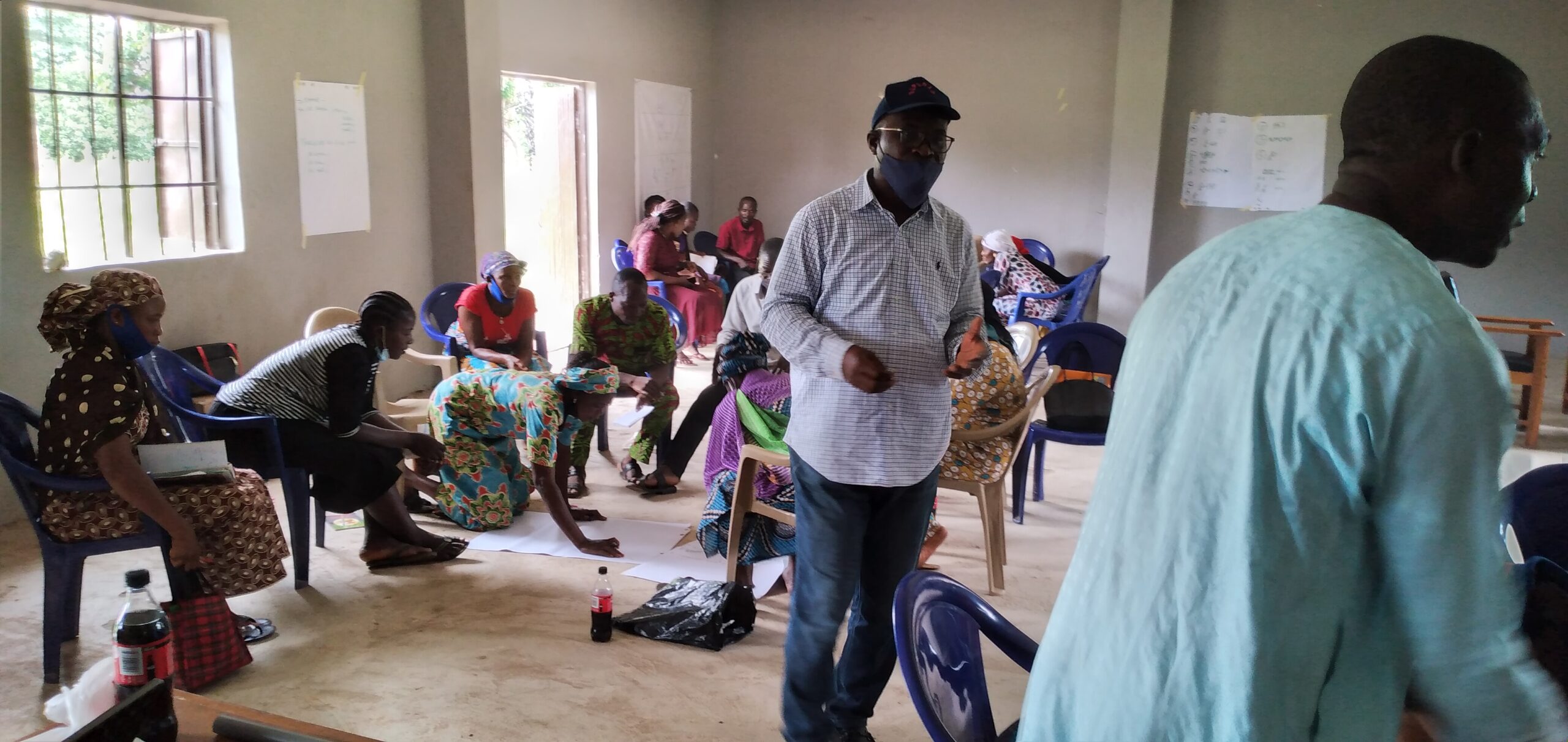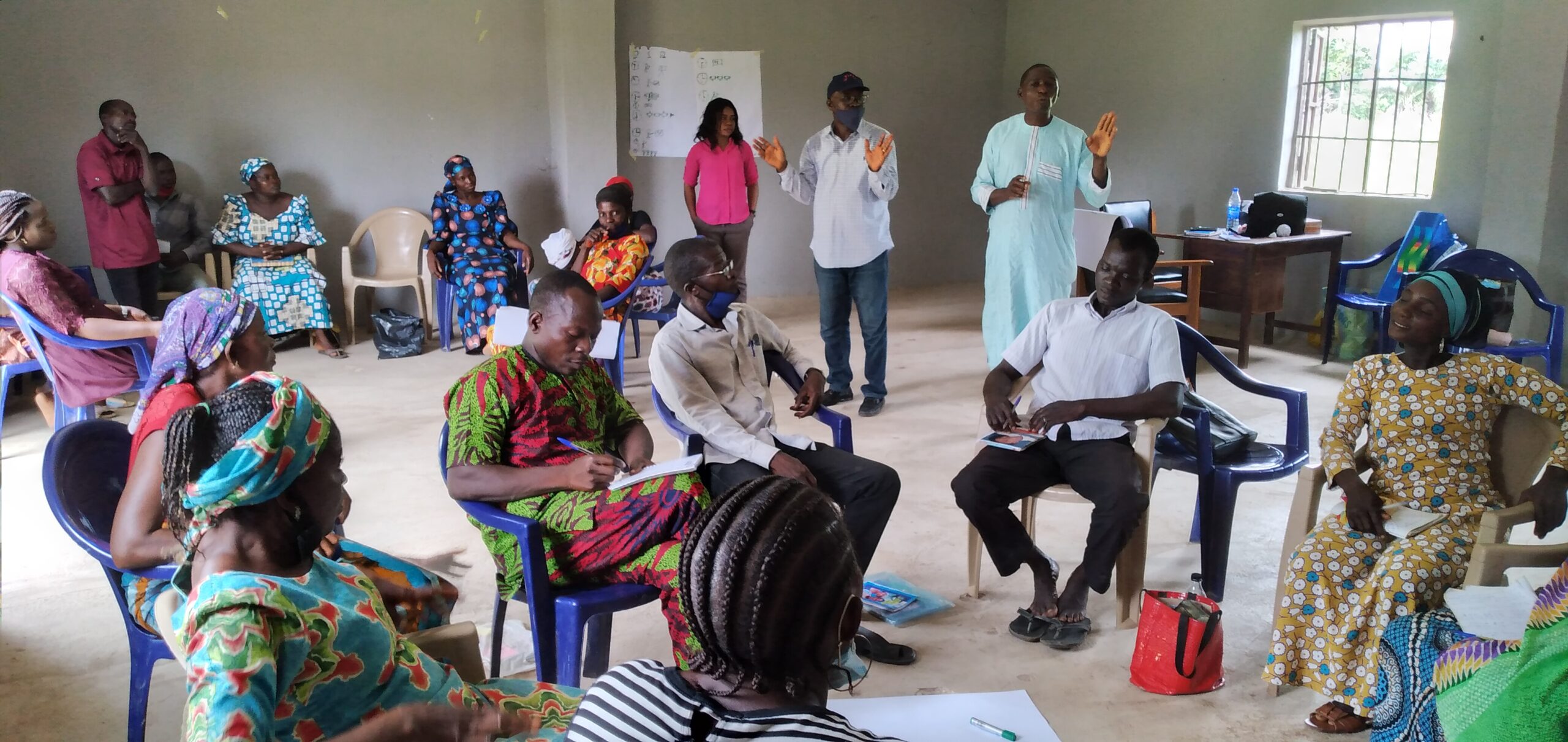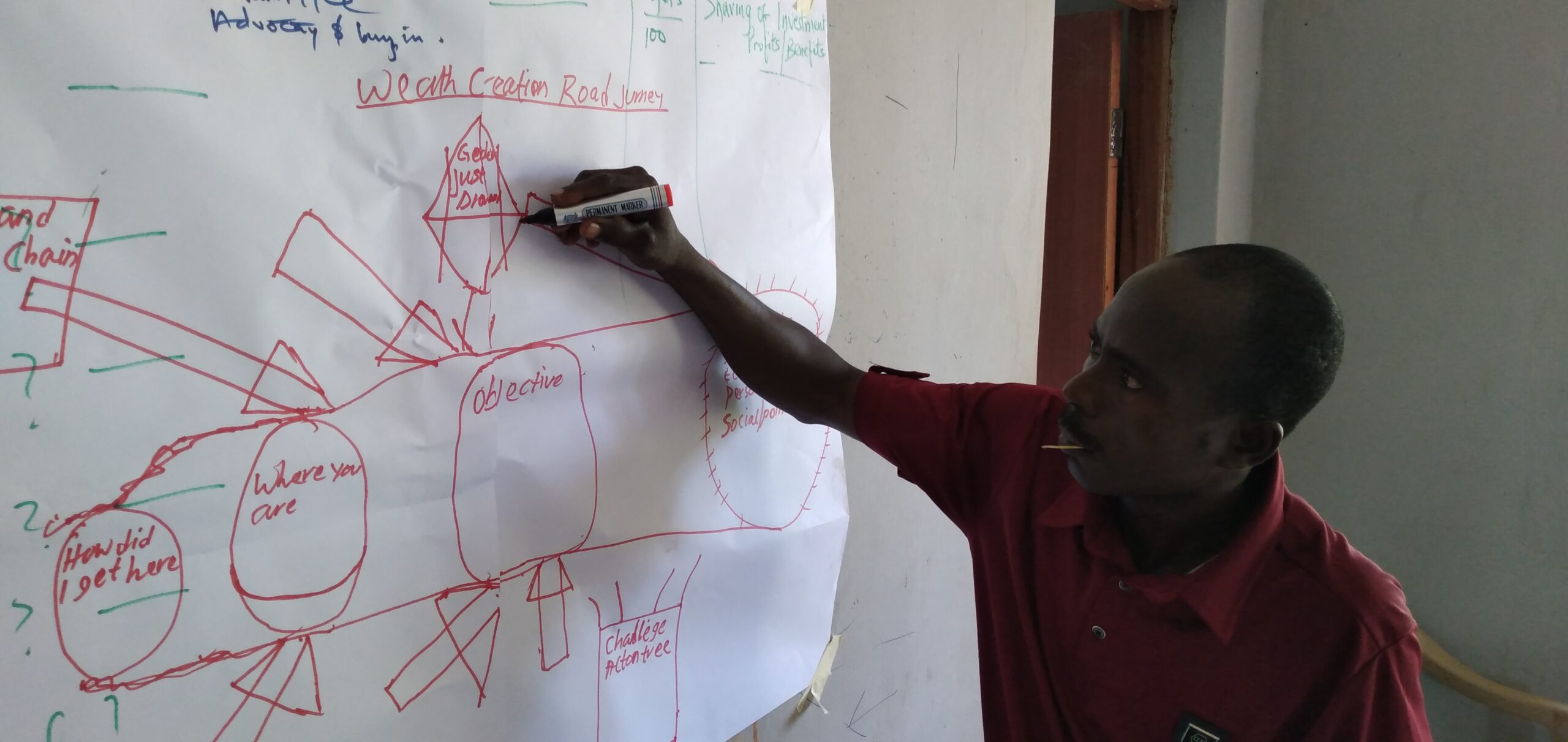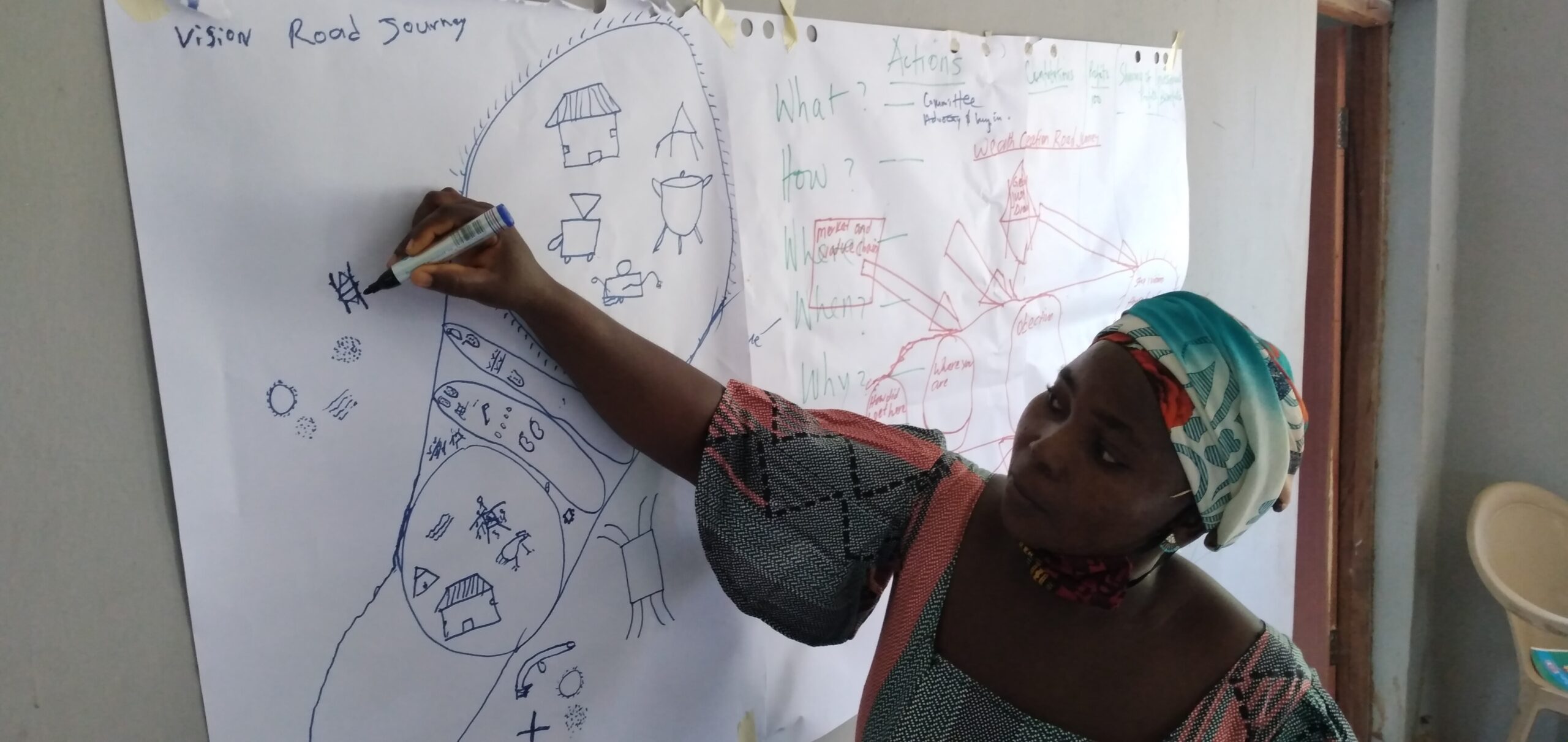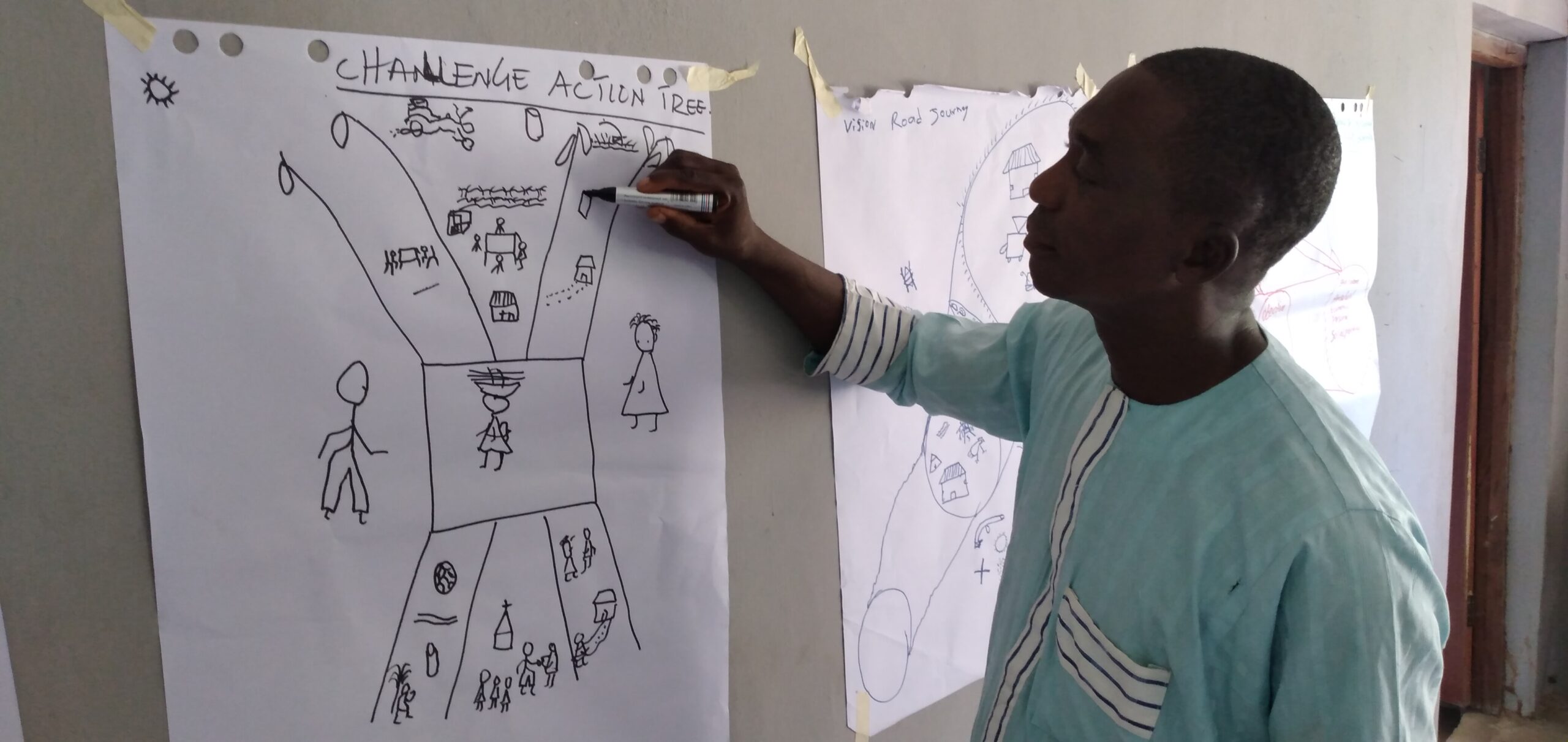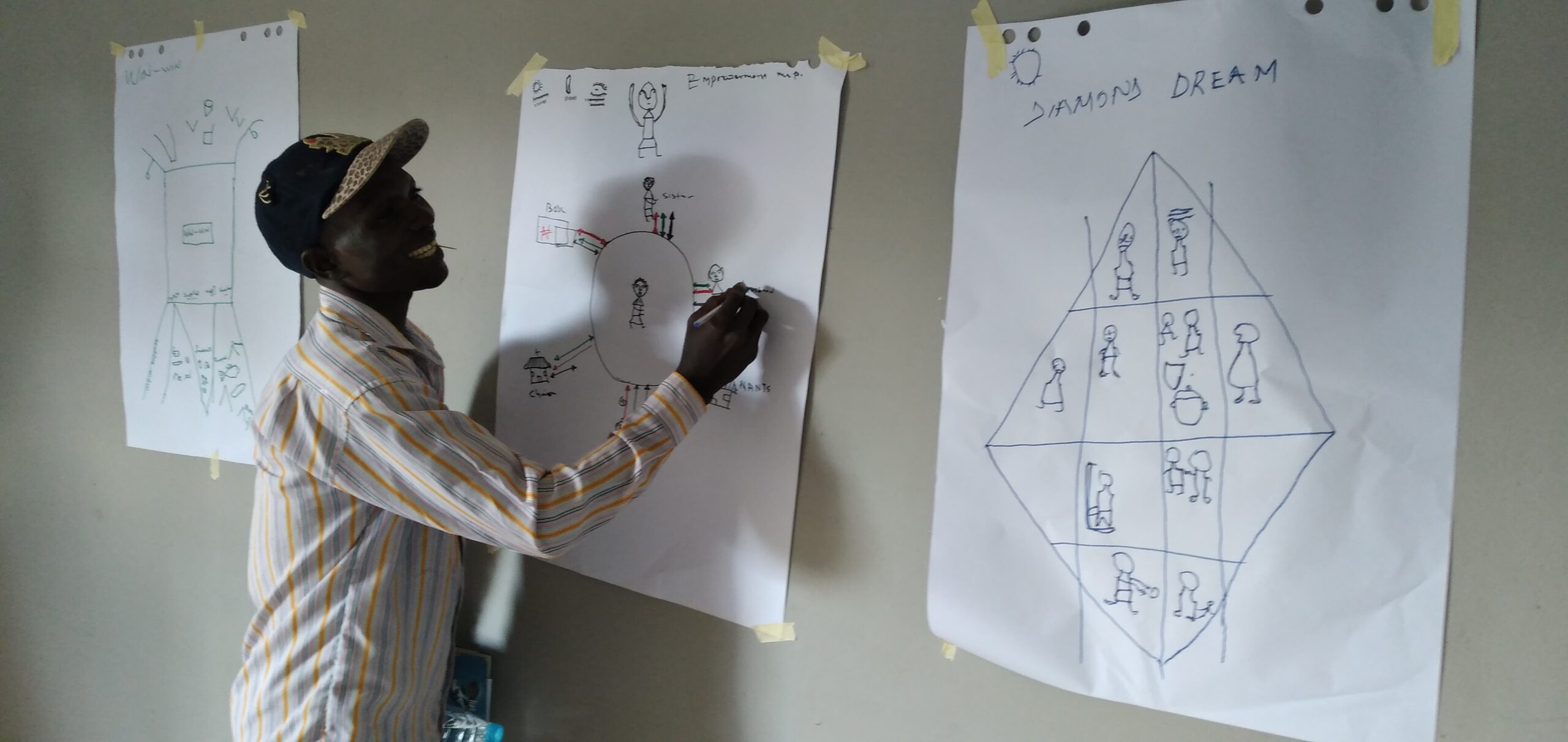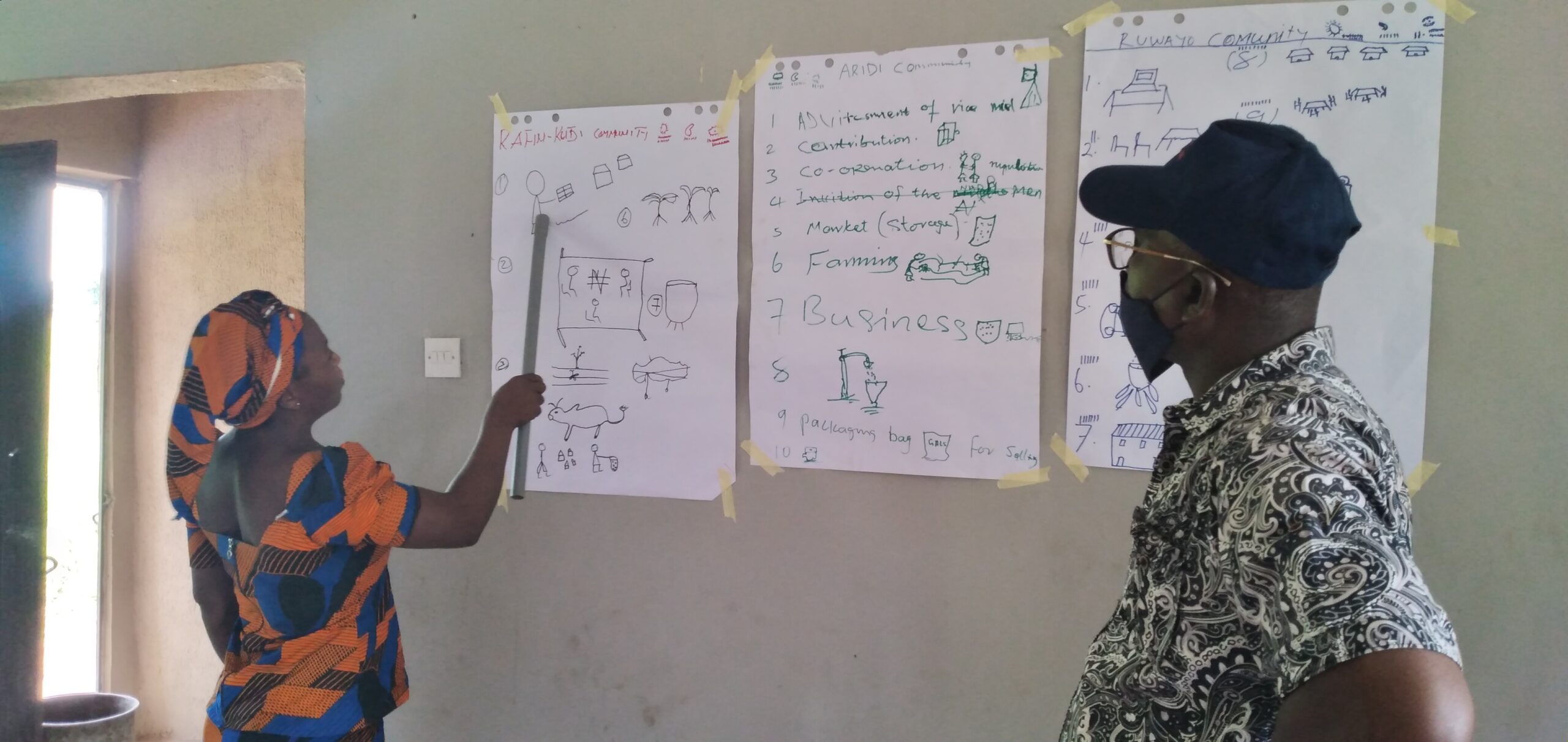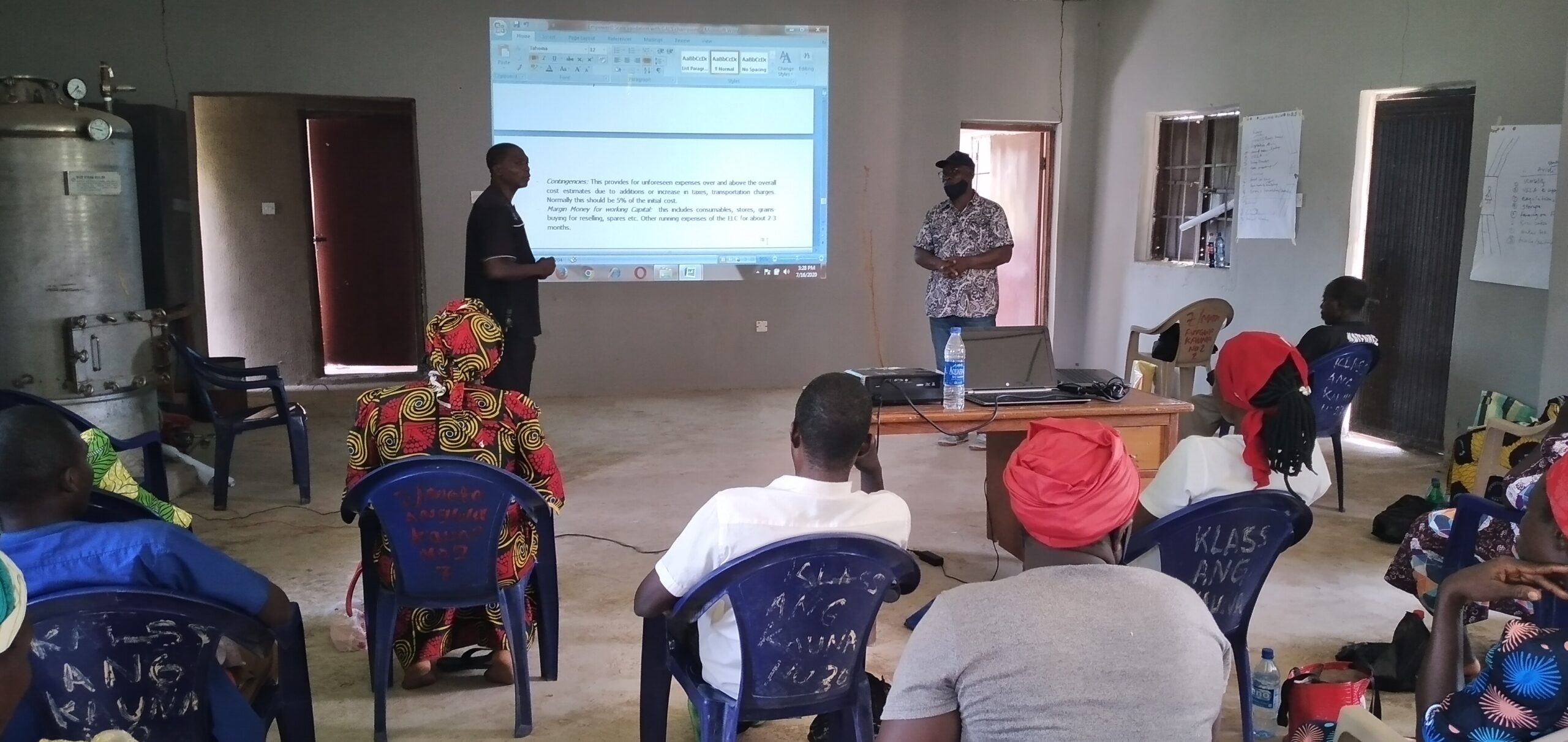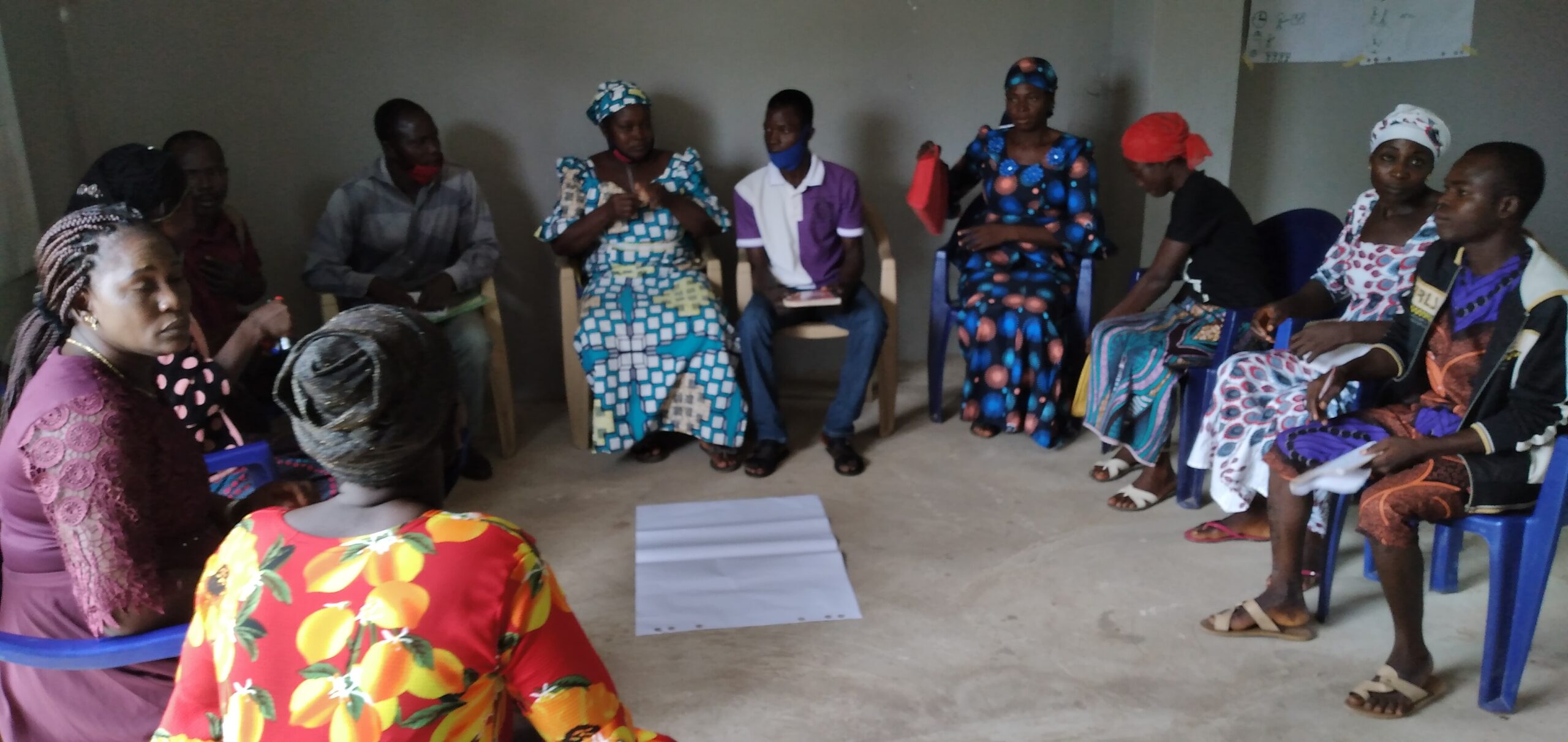Gender Studies, Disability, Social Development
Gender Studies, Disability, Social Development
ACIEDafrica recognizes that disadvantage takes multiple forms of inequalities, and women and girls across the continent are disproportionately affected by deeply rooted social injustice and gender inequalities and a number of structural barriers to sociopolitical and economic empowerment. The obstacles that marginalized people or excluded groups in semi-urban and rural communities especially girls, children, young women, widows, people with disabilities, older persons and non-binary youth often face the most discrimination.
Keeping gender, equity and inclusion is at the heart of everything we do, ACIEDafrica develops and test scalable innovations that enhance opportunities for young lives, particularly girls and young women from poor and vulnerable communities, to succeed in life and contribute to society with the conviction that women and men together are transformative agents of economic and social change in African economies. We are committed to approaching our work through intersectional and gender lens.
Towards achieving the gender equality and inclusion goal, ACIEDafrica adopts a multi-sectoral approach, as more inclusive public policies are essential if Nigeria or Africa is to achieve its poverty reduction targets and achieve sustainable economic growth. ACIEDafrica’s strategy to mainstream gender and inclusion perspectives in policymaking is to engage government partners and stakeholders to integrate principles and practices that promote gender and inclusion in research and policy dialogue. Through such partnership, ACIEDafrica provides technical support to mainstream gender and inclusion perspectives and produce gender-sensitive policy recommendation.
ACIEDafrica is dedicated to enhancing women’s and girls’ leadership while informing and empowering adolescents and young people with the essential information they need. Our mission is to equip them to demand quality services and to advocate for strong policies and programs from government duty bearers.
We focus on three core impact areas that are crucial for young people to transition into safe and productive adulthood:
Inclusive Learning (Education):
Providing accessible, quality education that supports lifelong learning and personal development.Economic Well-being:
Empowering youth through opportunities that promote financial stability, entrepreneurship, and sustainable livelihoods.Safe Healthy Lives:
Promoting an effective, inclusive primary healthcare system—ensuring that health and social services are designed to include everyone, especially those with disabilities.
Through these strategic focus areas, ACIEDafrica strives to create an environment where young people can thrive and drive positive change in their communities.
Gender Studies/Action Learning Methodology
- We champion the adaption of Gender Action Learning in Nigeria through a community-led empowerment methodology and integration of gender in development policies and programmes. We build partnership with indigenous communities and community-based organizations in piloting a community-led gender learning process that gives women and men more control over their lives and to support a sustainable movement for gender equality and socioeconomic justice. load load The Centre develops/produces gender learning manuals that aim at innovation, learning and advocacy for gender justice in economic interventions and institutions. The manual presents a set of gender methodology/tools for mainstreaming gender into value chain development, policies and programmes with key focus of analyzing and breaking through gender-based barriers at individual level, business and within the household and personal network as challenges that prevent men as well as women from achieving their vision. It intended to support organizations, facilitators and programme designs who may want to promote human rights with focus to understand international instrument for fighting inequalities that are often responsible for poverty and social injustice. people have value, the Centre continuously strives to promote full community participation for the people with disabilities, and continue to engage Nigeria government on advocacy for disability-friendly infrastructure, access to justice, social services. ACIEDafrica deploys innovative approach to address inclusion of the people with disabilities or vulnerable groups, particularly, strengthening their voice through programmatic interventions, and ensuring that they are specifically included in citizen engagement activities, in order to advocate for themselves and better meet their needs.
Social Innovation, Disability Inclusion
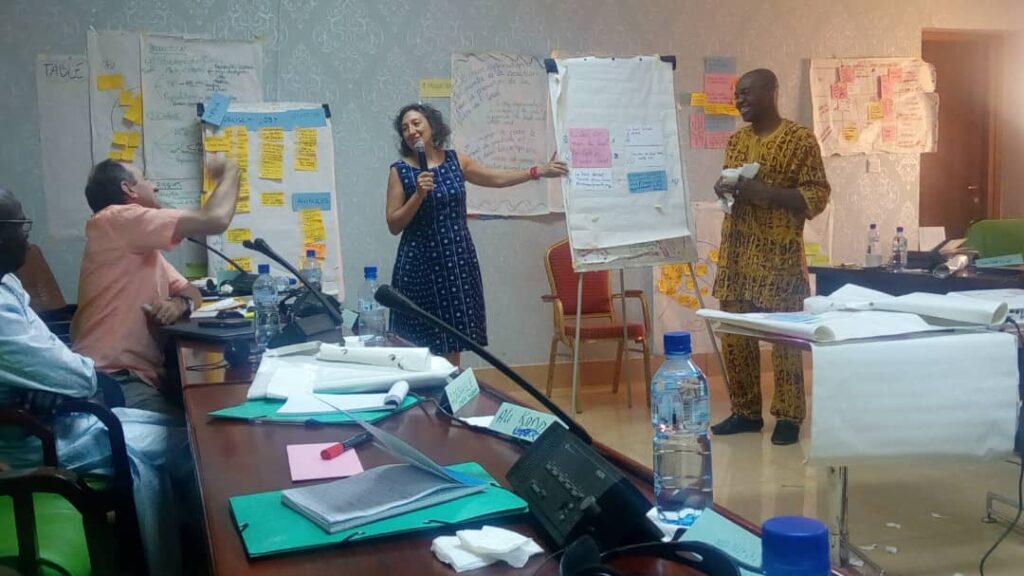
Health
Behavioral Health Equity Promotion
ACIEDafrica is dedicated to advancing health equity by ensuring that every individual—children, adolescents, and older adults alike—has a fair and just opportunity to achieve optimal health. We believe that high-quality, affordable healthcare and supportive services are fundamental rights for all, particularly for those in underserved communities, ethnic minorities, persons with disabilities, and individuals affected by persistent poverty and inequality.To realize this vision, we implement five key strategies:
-
Data Strategy:
Leverage state and community data to identify, monitor, and address behavioral health disparities. -
Policy Strategy:
Advocate for policy initiatives that enhance the impact of national programs, promoting better health and well-being for all populations. -
Community Partnership:
Foster local partnerships and raise awareness to create healthy environments through community-based policies and practices. -
Quality Practice and Workforce Development:
Expand the behavioral health workforce capacity to improve outreach, engagement, and the quality of care for minority and underserved groups. -
Communication Strategy:
Increase awareness and accessibility of information about behavioral health disparities and effective strategies to promote health equity.
Education
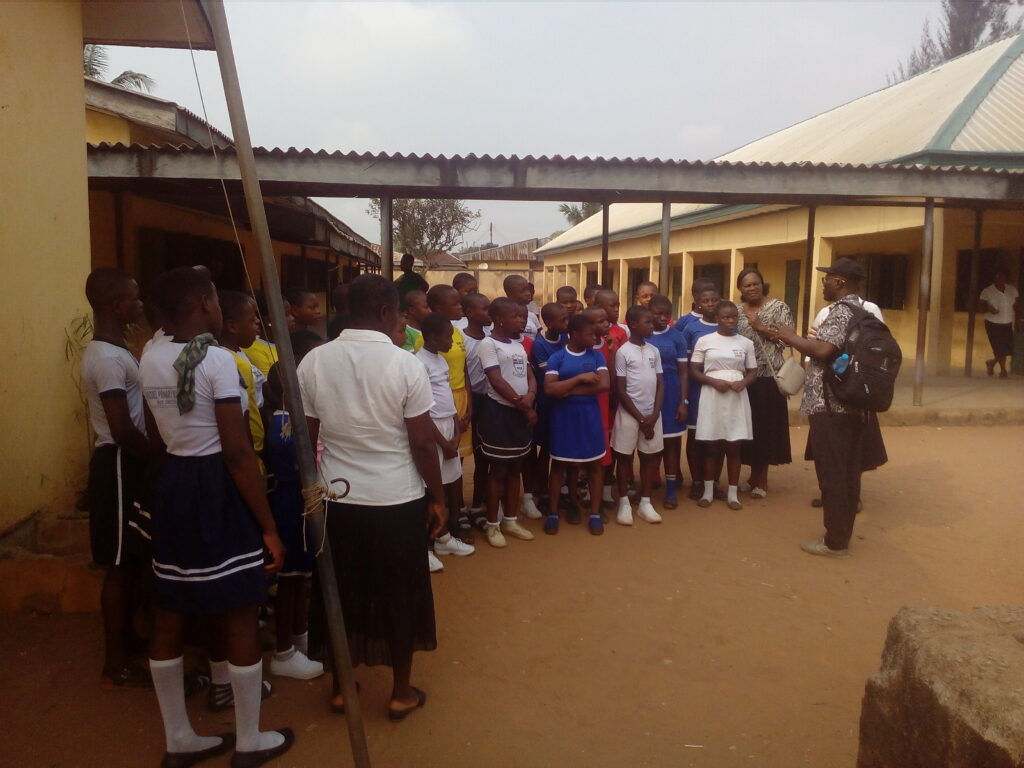
Our programme strategy centres on these objectives
- To identify the need for and to provide appropriate therapeutic services in the area of speech and hearing by trained and certified Special Teachers.
- To provide proper care management of the child.
- To engage parents and families through counseling as an integral part of the preparatory intervention and ensure their participation in every stage of our child developmental programmes.
- To ensure implementation of adequate measure for Disabled child education in the targeted area.
- To improve the quality and effectiveness of the educational, social and economic growth of the disabled child and children from the economically and socially backward background.
- Community sensitization
Water, Sanitation and Hygiene (WASH) Education for Schools and Communities
ACIEDafrica is committed to enhancing effective Water, Sanitation, and Hygiene (WASH) programming and education in schools and communities. Our comprehensive strategy is built around four key elements:
- Child-Friendly, Innovative WASH Infrastructure:
Supporting the design and implementation of safe, child-friendly facilities that improve access to water and sanitation. - Hygiene and Sanitation Training:
Promoting best practices through targeted training for school children and teachers to instill healthy hygiene habits. - Community Outreach on Period Poverty:
Raising awareness about period poverty as a critical public health, human rights, and socio-economic issue. - Advocacy for Menstrual Health Education and Policies:
Championing improved menstrual health education and stronger policies to ensure equitable access to necessary resources.
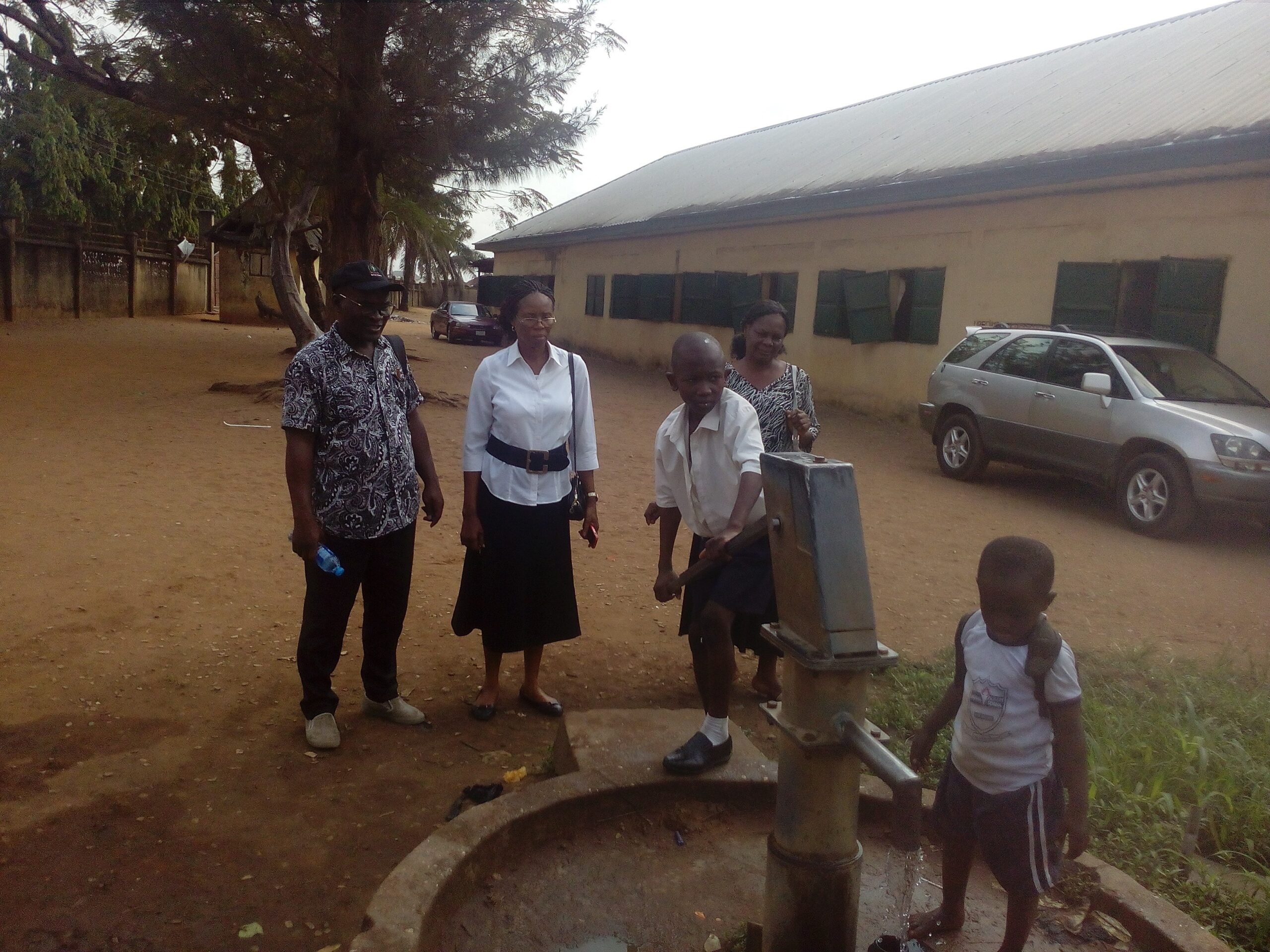
Our activities include
ACIEDafrica’s WASH and Hygiene Initiatives are designed to create healthier, more sustainable learning and living environments in public schools and disadvantaged communities. Our comprehensive approach includes:
Innovative Facilities & Materials:
We provide state-of-the-art water, sanitation, and handwashing facilities, along with essential hygiene materials, to ensure safe and accessible services for students and community members.Training on Hygiene Best Practices:
Through targeted training sessions in schools and communities, we promote effective hygiene and sanitation practices. Our public campaigns also work to eliminate open defecation, fostering a culture of cleanliness and health.Advocacy for Menstrual Hygiene:
We advocate and raise awareness for improved menstrual hygiene education and policies, particularly in rural areas. This includes sensitization programs and efforts to ensure that sanitation facilities are girl- and woman-friendly.Empowering Youth as Hygiene Advocates:
Our programs encourage children and young adults to become change agents, equipping them with the knowledge and skills to advocate for and maintain healthy environments in their homes and communities.
Our school-based activities are specifically tailored to boost enrollment and retention by providing clean water and quality sanitation systems, while also training students on maintaining healthy surroundings. ACIEDafrica is committed to promoting sanitation facilities that meet the unique needs of girls and women—equipping toilets with menstrual hygiene amenities and offering specialized training on menstrual management. Additionally, we support female students by providing free sanitary products, reducing the risk of infections and enabling them to thrive in a safe and supportive educational environment.
Have a question or need more information?
Contact us today—our team is ready to help with any enquiries you may have.
QUICK LINKS
PROJECTS
4 THEMATICS
ALL CONTACTS
- Suite C-034 H&A Plaza, along Olusegun Obasanjo Way, Wuye District Abuja-Federal Capital Territory, Nigeria
- +234 906 202 2245
- info@aciedafrica.org, aciedafrica.ng@gmail.com
- Copyright © 2025 ACIEDafrica. All Rights Reserved.

